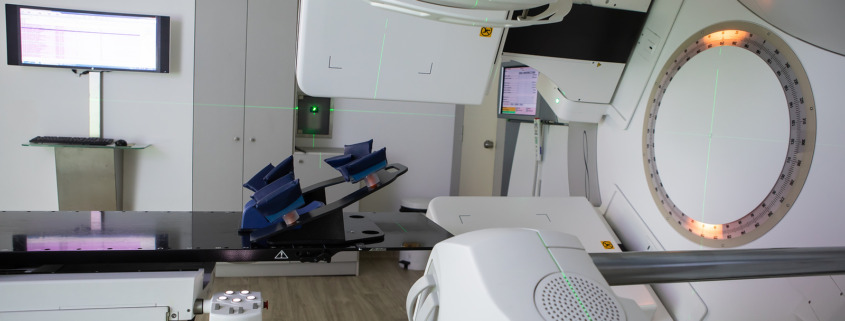What Is Radiotherapy Prehabilitation & What Does It Entail?
Treating a brain tumour is a comprehensive process for which success is based on the primary treatment pathway at a radiotherapy centre, as well as the work of the multidisciplinary team before, during and after a course of treatment.
The role of the multidisciplinary team (MDT), is not only to shape the primary treatment and provide clear, comprehensive options for managing a brain condition, taking into account the wishes of the individual, health needs and the potential for progression, but also to manage the preparation for treatment.
This process, known as preoperative rehabilitation or prehabilitation, is about maximising the time spent from the initial diagnosis to the first course of treatment in order to ensure that people are ready for treatment, experience as little discomfort as possible during it and recover as quickly as possible after it.
As with radiotherapy treatments, prehabilitation programmes are tailored for each individual based on a particular set of goals, which means that each one will have a different focus and involve a range of experts.
However, here are some of the core principles behind prehabilitation.
Helping Maintain Physical Health
There is a connection between physical activity and successful treatment outcomes, both for cancerous brain tumours and other conditions that may require radiosurgical intervention.
Energy levels are a key part of recovery, as the body will use more energy during treatment to recover from radiotherapy sessions. Regular physical activity provides more energy, which translates to a better quality of life before, during and after treatment.
An MDT will assist in a multitude of different ways, most commonly through physiotherapists.
A physiotherapist will create a targeted workout routine that is tailored to a person’s ability, energy levels and fitness needs, consisting of stretches, walks and other gentle forms of exercise that it is safe for them to undertake.
Maintain Nutrition
Another aspect of physical health is nutrition, and a dietitian is available to help provide a range of targeted interventions that could improve a person’s quality of life before and during treatment, as well as reduce recovery times.
In some cases, it is a matter of establishing a meal plan of affordable, easy-to-prepare and easy-to-eat meals that provide the body with the sustenance and energy it needs whilst recovering from radiotherapy.
It also is important to maintain variety and to eat delicious meals during this time, as appetite can sometimes be affected during treatment and not eating enough can exacerbate the fatigue that can happen during the recovery process.
In some cases, they can help signpost support such as “meals on wheels” schemes that could provide nutritious meals that are pre-prepared or require minimal preparation.
Whilst less common with brain cancer treatment, a dietitian can help with advanced dietary needs such as the installation of a feeding tube to help meet more complex needs.
Encouraging Lifestyle Changes
In some cases, a major component of prehabilitation is encouraging lifestyle adjustments that can assist radiotherapy treatments and significantly improve a person’s quality of life.
If someone is a regular smoker, they will likely be advised to quit during the course of the treatment, as smoking can have multiple negative effects on the brain as well as the heart, lungs and throat.
A member of MDT will be involved in this process and provide support and proven, effective interventions to ensure that a person can quit responsibly and stay quit. In other cases, they may signpost other appropriate stop-smoking services.
As well as this, it will be advised to minimise the consumption of alcohol during the treatment to within the 14 units per week recommended guidelines, spread out over at least three days and incorporating multiple alcohol-free days a week.
Mental Health Support
Physical health and mental health are interconnected, and both are linked to treatment outcomes, which means that an MDT will include a counsellor or psychologist to assist with any mental health needs.
This will include any existing psychologist or psychiatrist a person is seeing, as managing the mental effects of diagnosis is an important part of shaping recovery. They can also help provide continuity of care and ensure that any medication taken as part of radiotherapy treatments will not interfere with mental health medication.
Mental health support is not limited to people who are currently seeing a psychologist; the stress, anxiety, depression and fatigue can affect anyone who has been diagnosed, and a professional is always on hand to talk to throughout a person’s treatment and reassure them of what they can expect from their treatment pathway.


